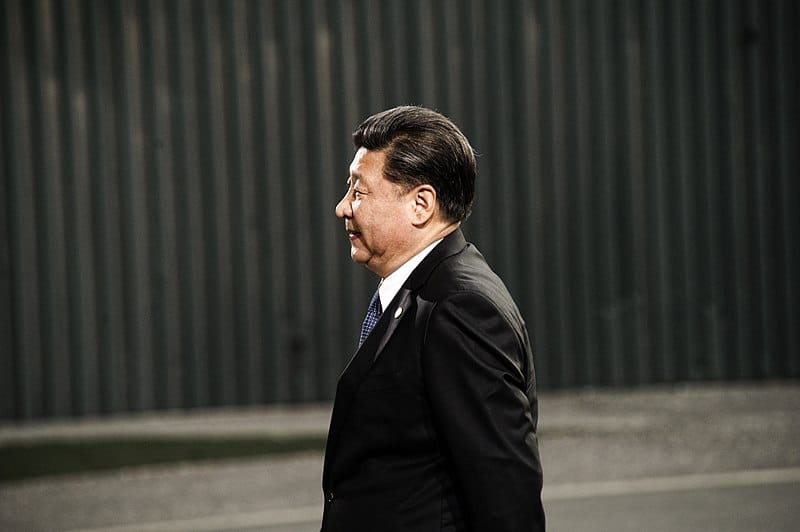The Chinese president has pointed to the fiscal and monetary policies of other nations as potential sources of risk for China’s finance sector.
State media reports that at the Politburo’s 40th Collective Study Session on the Preservation of National Financial Security, President Xi Jinping emphasised the importance of financial security as a key component of national security and as the foundation of stable and healthy economic growth.
While Xi lauded the overall health of China’s financial sector and referred to its risk levels as “controllable,” he highlighted the potential adverse impacts of the fiscal and monetary policies implemented by other countries.
“Today, with the deep development of economic globalisation, the spillover effects of financial crises are pronounced, and international financial risk spots remain numerous,” said Xi.
“The monetary and fiscal policy adjustments of certain countries could create risk spillover effects, and external shocks for China’s financial security.”
Xi said during the study session that finance lies at the core of the modern economy, and needed to be properly addressed in order to maintain stable economic growth.
“Since the reform and liberalisation era we have always emphasised financial work and financial security work, and China’s financial sector has made major accomplishments,” said Xi.
“Finance has become an important tool for resource allocation and macroeconomic adjustment, and a major driver of economic and social development.”
Six missions for the preservation of financial security
Xi mooted a total of six missions for the preservation of China’s financial security during the recent Politburo meeting.
- Deepening of financial reform, improvement of the financial system, reform of administration of financial sector firms, strengthening of prudential compliance operating concepts, spurring financial entities to pragmatically undertake risk administration work, improvements to market regulations, and improvements to market-based, rule-of law mechanisms for default handling
- Strengthening of financial monitoring and regulation, overall supervision and administration of systemically important financial entities, joint stock companies and important financial infrastructure; overall responsibility for comprehensive financial sector statistics, in order to ensure that the sound functioning of the financial sector, ensure that administrative departments grasp key links in the sector, ensure strong monitoring of risk, and avoid any regulatory oversights.
- Adopt measures to dispose of risk points, vigorously control their increase and strike against efforts to abscond from debt, as well as properly control leverage and expand the ability to strike against market conduct in violation of the law and regulations.
- Create an outstanding financial environment for the development of the real economy, and clear out channels for pouring funds into the real economy. Actively standardise the development of a multi-tier capital market, expand direct financing, strengthen credit policy guidance, encourage financial institutions to expand their capital support for advanced manufacturing and other sectors, and promote supply-side reforms.
- Raise the financial work capability of leadership cadres. Leadership cadres are required to work hard to study financial knowledge, become familiar with financial operations and grasp financial principles, as wells study how financial means can be used to expedite economic and social development.
- Strengthen the leadership of the party with regard to financial work, uphold the the unified leadership of the central party, and improve systemic mechanisms for the party’s leadership of financial work.



